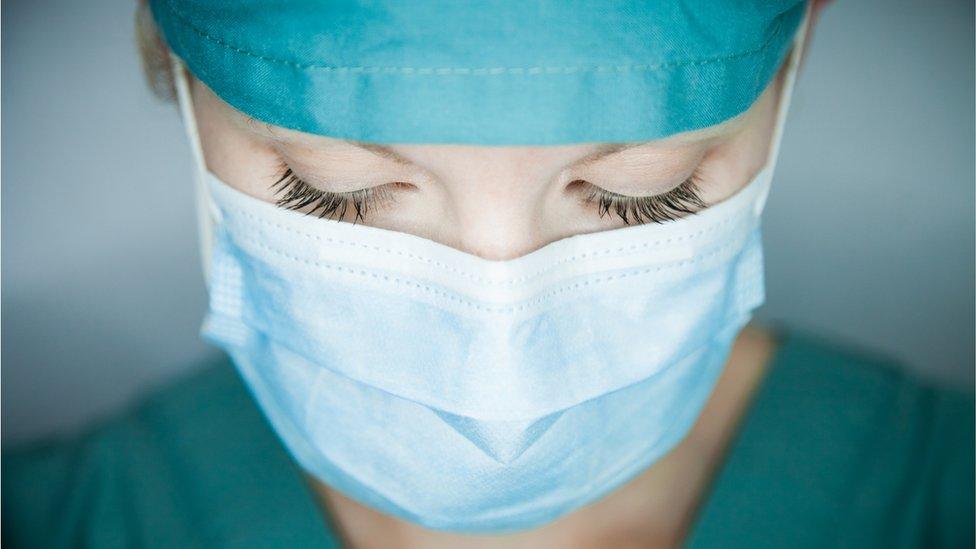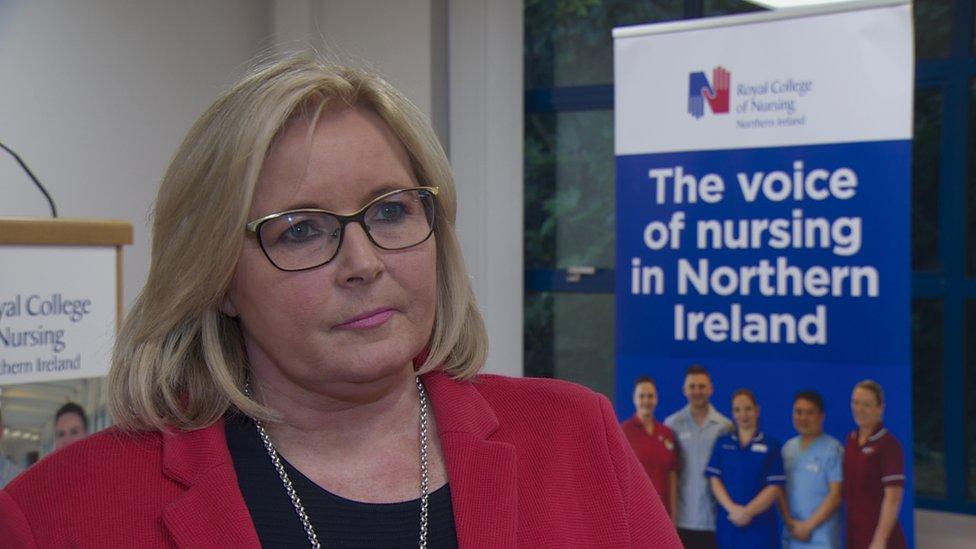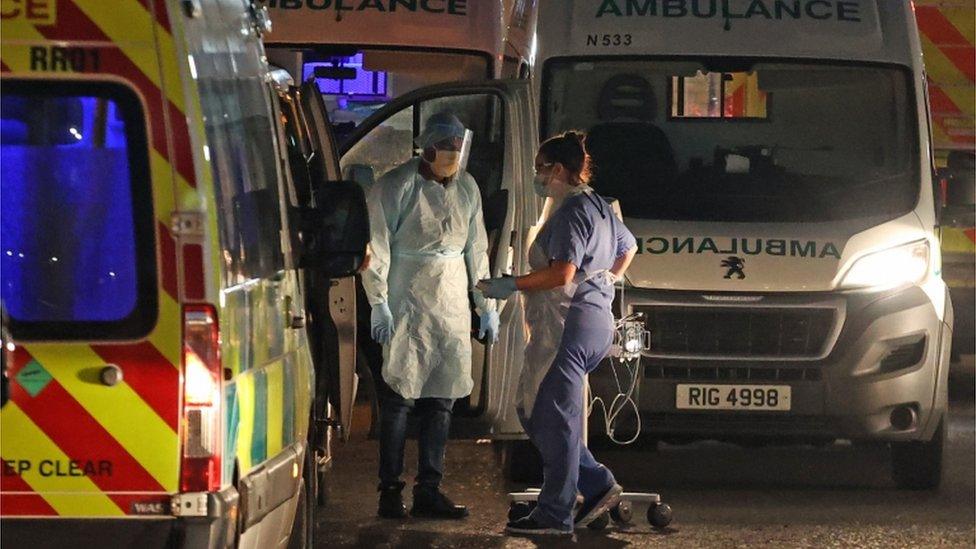Covid-19: NI nurses face 'tsunami of mental health issues'
- Published
- comments

Nurses in NI face a "tsunami of mental health issues" as a result of the Covid-19 pandemic, the Royal College of Nursing (RCN) has said.
Pat Cullen, the union's NI director, said many healthcare staff were already showing signs of post-traumatic stress disorder (PTSD).
It comes as NI expects its toughest week so far in the pandemic.
Mrs Cullen said the RCN has doubled its counselling services to meet the demand for support.
Staff have been warned of "real intense pressure" this week from the pandemic.
On Monday, Health Minister Robin Swann said the "worst case scenario" could see up to 1,200 Covid-19 inpatients across NI's hospitals.
He described it as a "serious pressure" on the system.
Mrs Cullen, who has worked as a mental health nurse for 36 years, said she had "no doubt" a mental health crisis is facing staff.
"I would honestly say, having cared for a number of individuals with PTSD [post-traumatic stress disorder], that nurses and other healthcare workers are starting to show early signs of PTSD and the symptoms of PTSD moving forward," she told BBC Radio Ulster's Nolan Show.
"That is something we need to be prepared for."
The RCN director said there will be a need to "increase our services again" at the union after previously doubling the support they offer to members.
"I know the trusts have increased their counselling services and occupational health services," she said.

Pat Cullen said nurses were showing signs of PTSD
Nicola Duffy, a GP in Londonderry who also works in the city's Covid centre, said GPs are also "exhausted, beleaguered and frustrated"
"We have all worked within a model where if we are on annual leave you stay local in case you have to come in to work," she told BBC's Good Morning Ulster programme.
"I have to be honest - personally the call to arms for doctors and nurses to make their way to a local hospital was very difficult to listen to," she said, referring to a Western Health Trust appeal to off duty staff last week.
"It reminded me of previous experiences of the Omagh bombing, for example and brought a lot of doctors back to that level of intense support.
'A different game'
"No one is complaining - we are here to do it. That is our role and our job but it is very different circumstances to March," she said.
She said that 10 months in many staff have been off sick and GPs are trying to cope with those suffering from "long covid" from the first or second waves.
In addition to this she said GPs were dealing with people who were having "dreadful grief responses who are requiring support because the normal model of grief is not being implemented for obvious reasons"
"It's just a different game to what we anticipated in March. We are prepared to do our very best but it is a very stark environment," she added.
- Published18 January 2021
